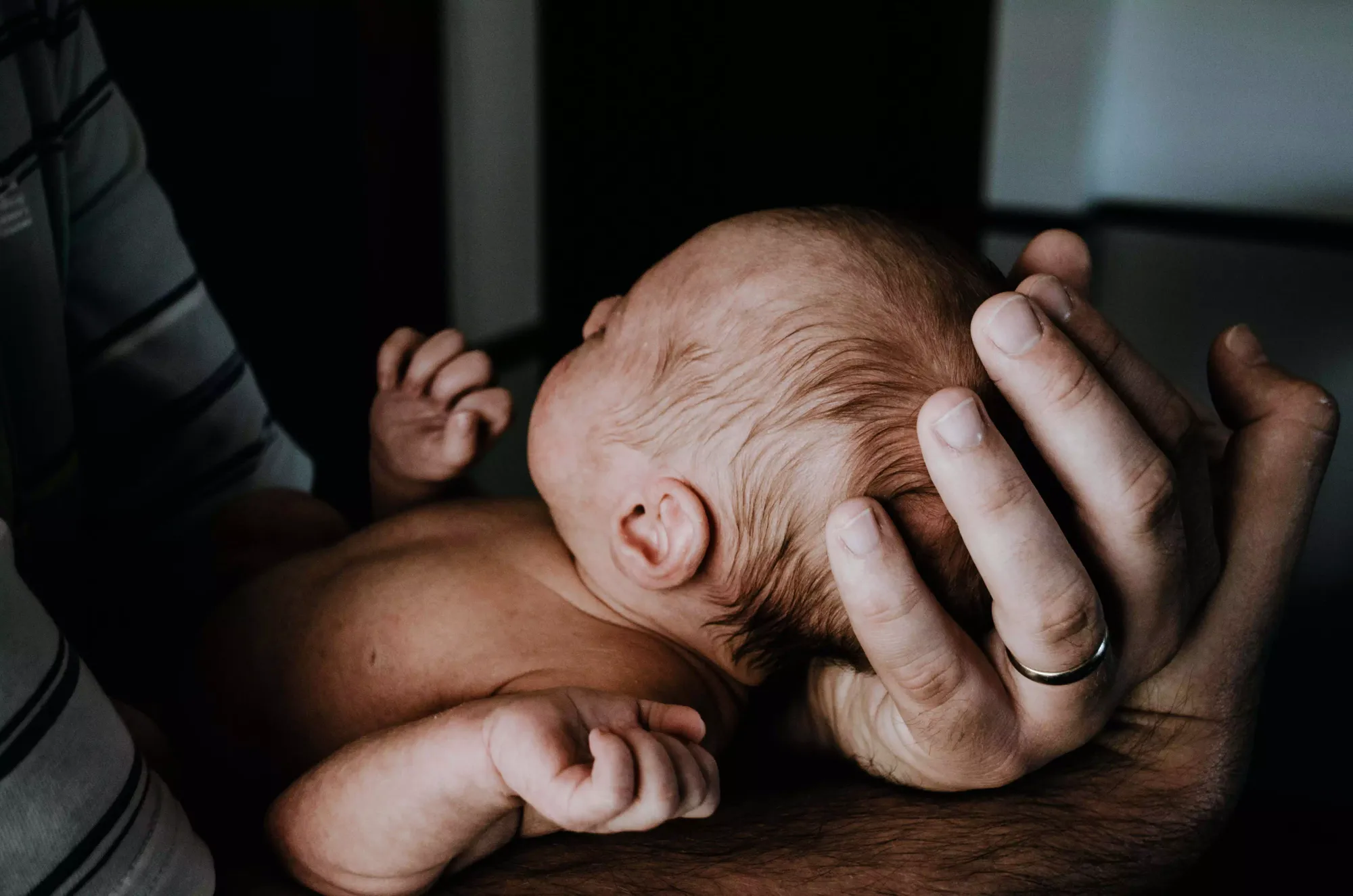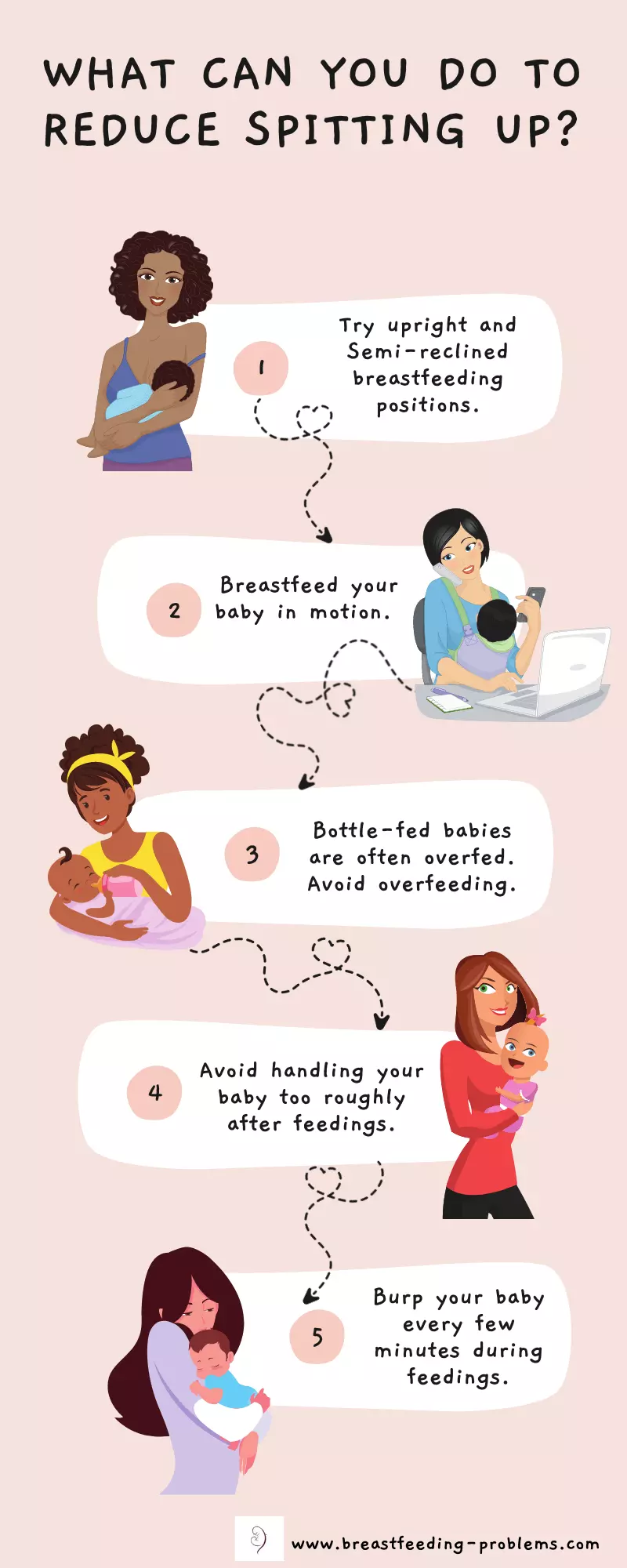Is My Baby Spitting Up a Cause for Concern?
Spitting up typically peaks between the ages of two and four months. By the time most babies can sit up by themselves, they usually have mastered the skill of keeping their food down.

My Baby Keeps Spitting Up!
Spitting up is a normal part of any infant’s growth and development, regardless of whether a baby is breastfed or formula-fed.
Some babies will spit up only a tiny blob of milk, while others seem to spit up 30ml or more at once. If your baby is spitting up clear liquid, don't worry. Spit-up can be white, clear, or curdled, a combination of partially digested milk and saliva.
How Much Spitting Up Is Normal?
All babies are different, but on average, if you are lucky, your baby will spit up about three times per day. But it is also perfectly normal for babies to spit up as much as 12 times per day.

When Do Babies Stop Spitting Up?
Spitting up is usually worse between two to four months of age. Most babies will have learned how to keep their food down by the time they begin sitting up on their own. Some babies take a whole year before they stop spitting up; it depends on the individual baby.
Frequent vomiting in children over the age of one and a half is not normal; they should be taken to the doctor for a check-up.
The Causes Of Baby Spitting Up
What causes a baby to spit up?
- Acid reflux can cause regurgitation, but usually in more significant amounts and more often than normal.
- A bottle-fed infant may drink too much. For formula feeding, find out how much formula you should be giving your baby for their age. Learn more about whether you can overfeed the breastfed infant.
- Newborns need to be burped quite often, especially when bottle-fed, because of the fast-flowing nipple. If the mother has a fast letdown, her little one will need to be burped at least every five minutes while breastfeeding to prevent them from swallowing air. If your baby is bottle-fed and is spitting up formula, you can always buy a teat with a smaller hole or fewer holes to decrease the milk flow.
- Fussy babies will usually swallow more air than others; this can also cause excessive gassiness.
- Spitting up in babies usually increases during teething times, developmental periods like growth spurts, and when introducing solids.
- Food sensitivities may cause some spitting up. A mother might be consuming something affecting her baby via breast milk. Also, foods or drinks given directly to a baby can affect them.
- If your baby has a cold, the mucus swallowed can cause your little one to spit up more.
- Lactating mothers who drink too much caffeine may be contributing to the problem.
- Can teething cause spitting up? Some babies drool more, lose their appetite, or cry more than usual, but experts believe that teething should not cause fever, rash, vomiting, or diarrhea, which was previously thought to be true.
How To Reduce Spit-Up
Your newborn spits up a lot? Tips on how to reduce spit-up
- Breastfeed your baby in a more upright position. Semi-reclined positions are pretty helpful, as they help gravity guide the milk down into the tummy.
- If possible, try to breastfeed in motion (while walking or rocking). Wearing your baby in a sling has also been found to help reduce gas and acid reflux symptoms in babies.
- Avoid distractions while breastfeeding; this keeps them from moving around, which prevents wind intake. Mothers can use nursing necklaces to reduce distractions while breastfeeding, reducing the incidences of spitting up.
- Avoid handling your baby too roughly after feedings; the movement might cause the milk to surface.
- Have smaller, more frequent feedings instead of long, far-spaced feedings that are more difficult to digest.
- Avoid tight-fitted baby clothing or anything that puts too much pressure on your little one's tummy.

Tushbaby Hip Carrier
With its ergonomic design and comfortable waistband, Tushbaby provides optimal support for both you and your baby, allowing for bonding on the go. Say goodbye to shoulder and back pain from traditional carriers, as Tushbaby evenly distributes your baby's weight, relieving strain and promoting better posture.
Warning Signs
- A decrease in the number of wet diapers accompanied by dehydration signs, such as a sunken fontanelle. More about required wet and soiled diapers for different ages.
- Know the difference between spitting up and throwing up. After spitting up, your baby should still seem happy, but vomiting will always cause discomfort. Infant vomiting may occasionally occur because of a larger air bubble, but if your infant is vomiting more than usual and projectile vomiting, you should visit your pediatrician. Babies who projectile vomit more than once a day may have pyloric stenosis, a stomach problem requiring surgery.
- If your baby is choking, gagging, or hiccoughing a lot, with frequent burping and bad breath, it is best to talk to your pediatrician about it.
- If your little one seems to be sleeping less due to discomfort, you should also seek the advice of your pediatrician.
- If your little one cries a lot after feedings, it could signify severe reflux.
- If your baby has difficulty eating, has poor weight gain, or refuses to breastfeed, you should get help.
- If your baby spits blood or green liquid, it could signify something more severe.
